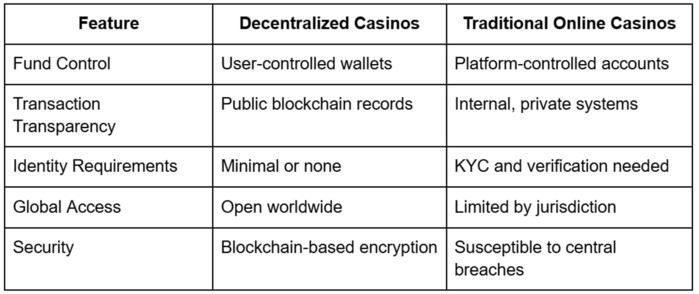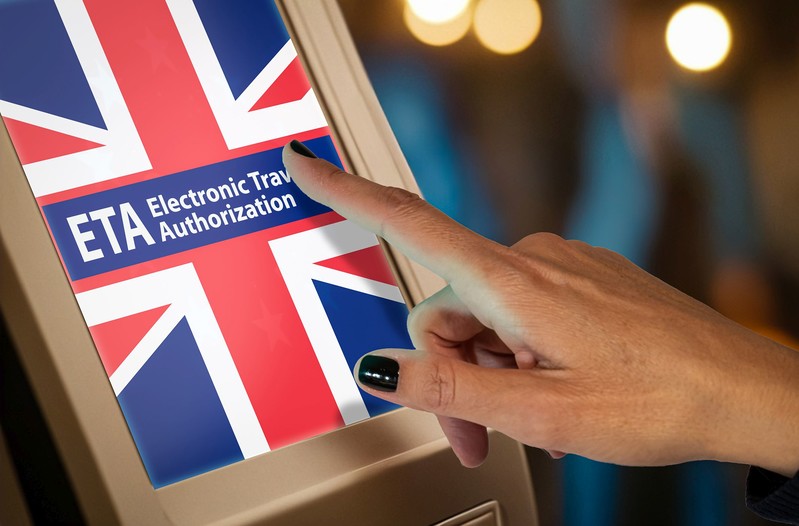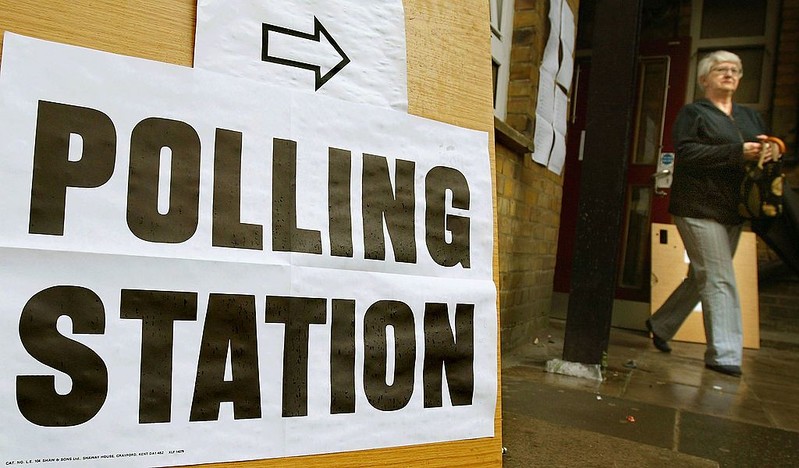Why Crypto Casinos Are the Future of Online Gambling

The Shift Toward Decentralization and Transparency
One of the driving forces behind the growing popularity of crypto casinos is blockchain technology. These platforms operate on distributed networks, removing the need for central authorities. Players no longer need to trust a single operator to handle their funds or ensure fair play. Everything from deposits to outcomes is verifiable through public ledgers.
Decentralized crypto casino models rely on smart contracts to automate key processes—like game fairness and payouts—removing room for manipulation or delay. These contracts are written in code and executed automatically, which gives users more autonomy and less reliance on traditional casino operators.
Here's a breakdown of how decentralized casinos compare to their traditional counterparts:

Crypto Payment Solutions and Cross-Border Accessibility
Fast, secure transactions are essential for any online gambling system. One major advantage of cryptocurrency online casino solutions is their ability to facilitate near-instant deposits and withdrawals, often with lower fees than traditional methods. Unlike credit cards or e-wallets, crypto transactions bypass banks, making the system more efficient.
Players using casino cryptocurrency are also less affected by local restrictions. Since these digital currencies operate independently of banks and governments, access becomes broader, especially in regions with limited banking infrastructure.
For players seeking user-friendly options, more details can be found on FIRST crypto casino apps, which support a wide range of digital assets.
Why Players Are Embracing Crypto Casinos
Cryptocurrency’s rise in gambling isn’t just about novelty—it solves real problems. Consider these growing points of appeal:
- Anonymity – Players can gamble without handing over personal documents.
- Faster Settlements – No more waiting days for withdrawals.
- Lower Fees – Without middlemen, fees are reduced.
- Global Play – Games are accessible without currency exchange.
- Game Fairness – Outcomes can be verified on the blockchain.
This is particularly relevant for fans of bitcoin online casino games who are drawn to both the transparency and speed of the ecosystem.
Use Cases: From Bitcoin Live Roulette to NFT-Driven Rewards
Game developers are also exploring new mechanics using crypto infrastructure. Bitcoin live roulette, for instance, offers real-time gameplay that pairs live streaming with crypto wagers. Combined with blockchain verification, it allows players to view results and verify that the wheel isn’t rigged.
Some decentralized platforms go a step further by incorporating NFTs. These digital assets may function as VIP passes, game items, or collectible tokens with resale value. As gambling moves toward tokenization, NFTs could become common loyalty tools—rewarding players without the friction of traditional bonus systems.
Challenges to Consider
Of course, there are risks. Using cryptocurrency for gambling introduces exposure to market volatility. The value of your winnings could drop significantly if the underlying asset swings unexpectedly. It’s one reason some platforms allow users to convert crypto winnings to fiat currency instantly.
There’s also regulatory uncertainty. Since crypto laws vary by country, many operators must tread carefully. Players, too, should be aware of local laws before engaging. Lack of regulation in some areas has also created room for scam sites to operate, so due diligence is essential.
Regulation and Market Maturity Are Still Catching Up
While the advantages of crypto casinos are evident, regulation remains a developing factor. Many jurisdictions have yet to establish clear rules around the use of digital assets in gambling. This leaves both operators and players in a gray area—particularly when it comes to licensing, taxation, and consumer protection.
Despite the current ambiguity, progress is being made. Some countries are beginning to create legal frameworks that recognize online casino cryptocurrency transactions and outline standards for compliance. As these frameworks mature, they will provide more legitimacy and stability for the industry. Until then, both developers and users need to be cautious and prioritize transparency, fairness, and legal accountability.
The increasing global interest in decentralized gambling is encouraging regulators to act. In time, a more structured market could emerge—one that balances the freedom offered by blockchain with the safeguards required for responsible play.
Looking Ahead: Decentralized Gambling as the New Standard?
The rise of decentralized gambling is not just a fad—it aligns with a broader trend in digital finance: users want more control, fewer restrictions, and better transparency. These casinos are reshaping expectations. Instead of waiting for approval from financial intermediaries, players can transact directly through code.
Online casino cryptocurrency is no longer an outlier. Platforms that adopt it are gaining an edge, especially among a younger audience raised on digital money and decentralized apps.
In time, we may look back and see this era as a tipping point. While traditional casinos will continue to exist, the momentum is shifting. Cryptocurrency for gambling, whether through dApps or hybrid platforms, is already proving it can deliver speed, security, and autonomy in ways fiat casinos can’t.





























